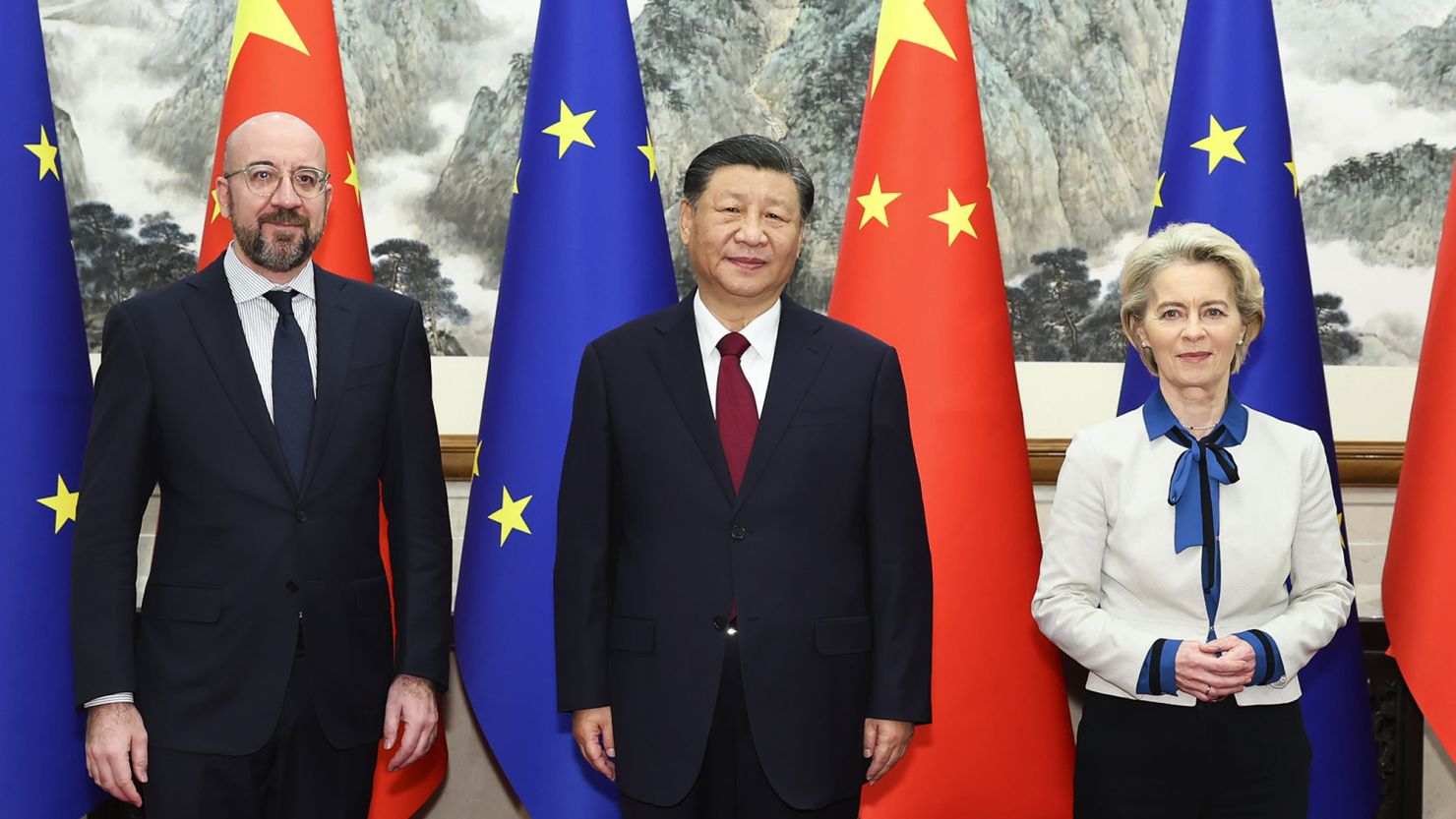What are the EU-China summit outcomes? Rivalry of partnership
On December 7, 2023, China and the European Union (EU) held the next high-level Summit in Beijing, which ended without any dramatic clash of views or statements. Simultaneously, the Summit did not result in any significant result in EU-China bilateral relations.
The President of the European Council, Charles Michel, and the President of the European Commission, Ursula von der Leyen, engaged in discussions with China’s President, Xi Jinping, followed by interactions with China’s Premier, Li Qiang. This Summit marked a significant occasion for the EU to connect with China, building on intensified bilateral contacts and dialogues.
In what has almost become a tradition by now, the Chinese leaders attempted to do their best to drive a wedge between the transatlantic allies by warning the EU leaders against “all kinds of interference” from outside powers, such as the United States and its latest export curbs on high-end artificial intelligence chips and chipmaking tools.
In 2022, the economic ties between Europe and China showcased a mutually beneficial relationship, evident in Europe’s crucial role as a significant contributor to China’s foreign direct investment and major economic projects. Indeed, China is keen to maintain the flow of European investments amid its slowing economy.
Nevertheless, compared to previous years, the EU exports to China significantly plummeted in the last two years, when China’s confrontation with the West skyrocketed. One primary reason for plummeting EU exports to China is China's localization requirements, which make it very difficult for foreign companies to continue to rely on their external suppliers. Their substitution with Chinese domestic suppliers is a key objective of China's landmark industrial policy.
On the other hand, China significantly increased the export of green tech, especially solar panels and electric vehicles (EVs), as the global export share is 90%. Such prospects led to the EU pressure on China to halt its exports and attempts to make inroads into European markets. Undoubtedly, Beijing, for its part, has likewise complained of unfair trade practices, criticizing the EU’s investigation into subsidies received by Chinese electric vehicle exporters and the EU’s planned Carbon Border Adjustment Mechanism, which began a trial phase in October and could bring substantial new tariffs for Chinese exporters of carbon-intensive products by 2026.
As of 2023, China’s trade surplus with the EU reached its highest level last year at just below 400 billion, further strained the relationship. The current surging confrontation between the West and China ignites the situation more while Beijing deepens ties to Russia and Iran, arch-foes of the Western coalition.

China’s striving ambitions to exert more influence in Europe and Asia pushed the EU and the US to cooperate in curbing that influence, though unsuccessfully. Therefore, amid diplomatic escalation, the high-level Summit in Beijing is noteworthy as it marks an essential juncture, as it provides an avenue through which the EU can develop a nuanced comprehension of various dimensions of its relationship with China. Simultaneously, Beijing watches nervously as the bloc's de-risking agenda becomes more concrete.
Consequently, EU officials have been careful to keep expectations for the Summit low regarding a joint statement or announcements on concrete deliverables. As anticipated, the Summit in Beijing helped alleviate some political disputes to keep the EU-China partnership on the surface, but it did not yield major deliverables or milestones. For example, President Charles Michel tried to persuade Xi Jinping to abandon China's support of Russia amid its war in Ukraine and push Moscow to withdraw its troops.
Nevertheless, the EU approaches the Chinese issue more diplomatically, while the US obtains bellicose rhetoric. Hence, at the most recent US-EU Summit last month, for example, the two sides couldn’t overcome differences in their approaches on China policy as well as other issues such as climate and trade. In this regard, the EU partners may ask the US to abstain from bold statements against China in a bid to distance Beijing from Moscow.
However, it is unlikely that the Biden administration will soon abandon the policy of intimidation of China. Before the presidential elections in 2024, Joe Biden's approval rate declined significantly, and the current administration seeks a breakthrough in diplomacy to underline the US's hegemonic role in the international arena. Notwithstanding, China's strategy of countering the EU and the US will remain unchangeable as the current political and economic conditions favour the West.








